Jeff Bezos' New Shepard rocket system flies for 10th time
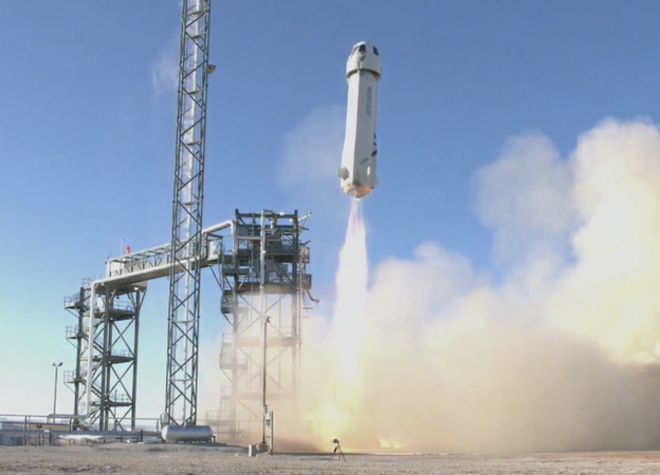 Image copyright BLUE ORIGIN
Image copyright BLUE ORIGIN
US billionaire Jeff Bezos has put up his New Shepard space vehicle from Texas again, carrying a suite of Nasa experiments to an altitude of 107km.
The booster and capsule system separated as planned on the ascent, with both elements then making a controlled descent to the desert floor. In December, UK entrepreneur Richard Branson saw his rocket plane, Unity, fly to the edge of space.
Both men plan to offer rides to fare-paying passengers in the near future.
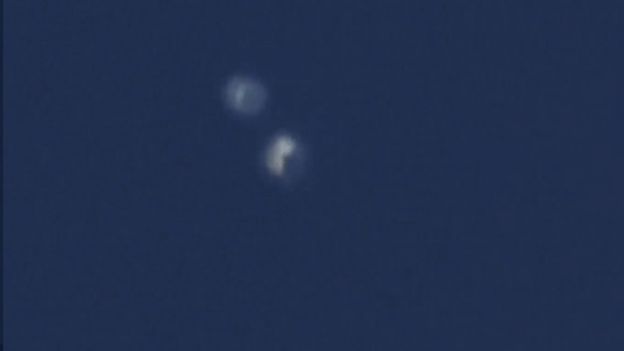 Image copyright BLUE ORIGIN
Image copyright BLUE ORIGIN It was the 10th occasion that Mr Bezos' Blue Origin company had launched the reusable system - the fourth using upgraded hardware.
The New Shepard rocket reached a top speed of 3,582km/h (2,226mph) as it sent the capsule to an apogee of 106.92km (350,775ft) - above the so-called Kármán line, the most widely accepted boundary of space. Unity on its test flight last month got to a height of 82.7km
The eight Nasa experiments aboard the New Shepard capsule were demonstrating a range of new space applications - including electronics, environmental sensors and fuel-handling technologies.
They would have experienced a few minutes of weightlessness around the top of New Shepard's climb into the sky.
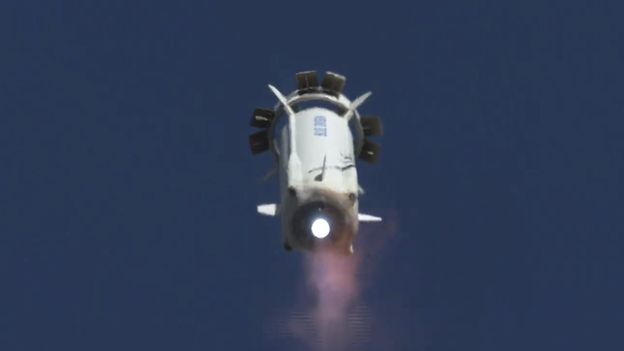 Image copyright BLUE ORIGIN
Image copyright BLUE ORIGIN 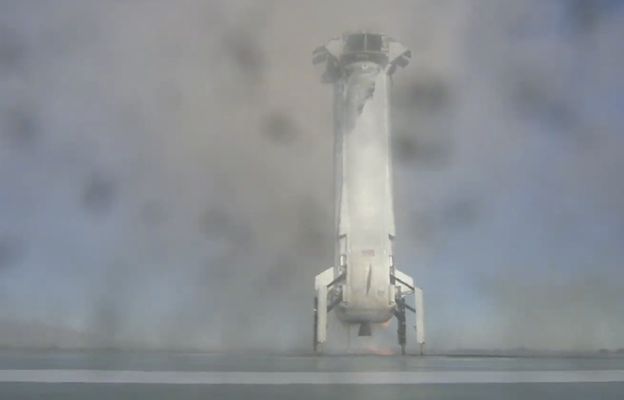 Image copyright BLUE ORIGIN
Image copyright BLUE ORIGIN Twenty-nineteen is shaping up to be a busy one for commercial space, with quite a few new rocket systems expected to make significant progress.
As well as his sub-orbital plane, Richard Branson hopes also to put up his satellite-delivery vehicle, LauncherOne.
And the established American rocket companies Boeing and SpaceX will be testing the taxi services they will use to take astronauts to the International Space Station.
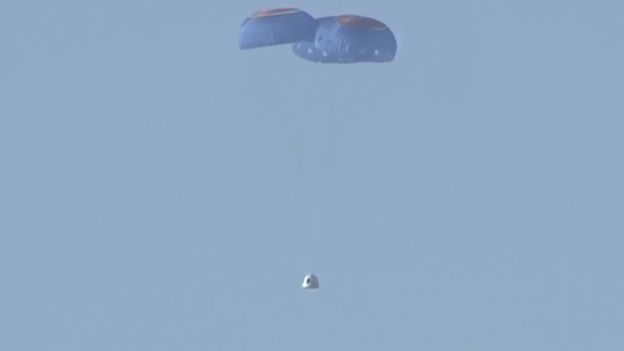 Image copyright BLUE ORIGIN
Image copyright BLUE ORIGIN 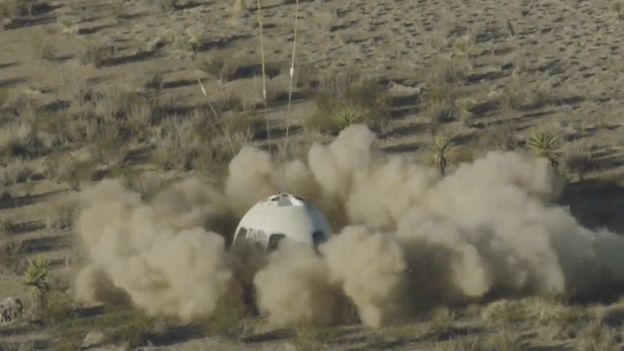 Image copyright BLUE ORIGIN
Image copyright BLUE ORIGIN 


Ingen kommentarer:
Legg inn en kommentar
Merk: Bare medlemmer av denne bloggen kan legge inn en kommentar.